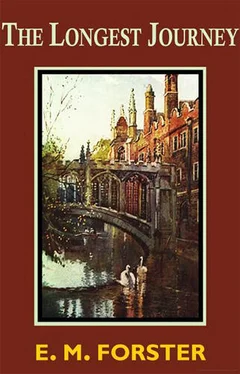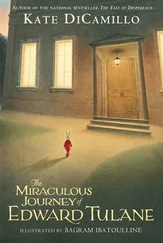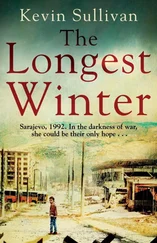Edward Forster - The Longest Journey
Здесь есть возможность читать онлайн «Edward Forster - The Longest Journey» весь текст электронной книги совершенно бесплатно (целиком полную версию без сокращений). В некоторых случаях можно слушать аудио, скачать через торрент в формате fb2 и присутствует краткое содержание. Жанр: Классическая проза, на английском языке. Описание произведения, (предисловие) а так же отзывы посетителей доступны на портале библиотеки ЛибКат.
- Название:The Longest Journey
- Автор:
- Жанр:
- Год:неизвестен
- ISBN:нет данных
- Рейтинг книги:5 / 5. Голосов: 1
-
Избранное:Добавить в избранное
- Отзывы:
-
Ваша оценка:
- 100
- 1
- 2
- 3
- 4
- 5
The Longest Journey: краткое содержание, описание и аннотация
Предлагаем к чтению аннотацию, описание, краткое содержание или предисловие (зависит от того, что написал сам автор книги «The Longest Journey»). Если вы не нашли необходимую информацию о книге — напишите в комментариях, мы постараемся отыскать её.
The Longest Journey — читать онлайн бесплатно полную книгу (весь текст) целиком
Ниже представлен текст книги, разбитый по страницам. Система сохранения места последней прочитанной страницы, позволяет с удобством читать онлайн бесплатно книгу «The Longest Journey», без необходимости каждый раз заново искать на чём Вы остановились. Поставьте закладку, и сможете в любой момент перейти на страницу, на которой закончили чтение.
Интервал:
Закладка:
There was a murmur of alarm. One of the prefects rose, and Ansell set his back to the wall, quite ready for a battle. For two years he had waited for his opportunity. He would hit out at Mrs. Elliot like any ploughboy now that it had come. Rickie said: "There is a slight misunderstanding. I, like my wife, have known what there is to know for two years"—a dignified rebuff, but their second blunder.
"Exactly," said Agnes. "Now I think Mr. Ansell had better go."
"Go?" exploded Ansell. "I've everything to say yet. I beg your pardon, Mrs. Elliot, I am concerned with you no longer. This man"—he turned to the avenue of faces—"this man who teaches you has a brother. He has known of him two years and been ashamed. He has—oh—oh—how it fits together! Rickie, it's you, not Mrs. Silt, who must have sent tales of him to your aunt. It's you who've turned him out of Cadover. It's you who've ordered him to be ruined today."
Now Herbert arose. "Out of my sight, sir! But have it from me first that Rickie and his aunt have both behaved most generously. No, no, Agnes, I'll not be interrupted. Garbled versions must not get about. If the Wonham man is not satisfied now, he must be insatiable. He cannot levy blackmail on us for ever. Sir, I give you two minutes; then you will be expelled by force."
"Two minutes!" sang Ansell. "I can say a great deal in that." He put one foot on a chair and held his arms over the quivering room. He seemed transfigured into a Hebrew prophet passionate for satire and the truth. "Oh, keep quiet for two minutes," he cried, "and I'll tell you something you'll be glad to hear. You're a little afraid Stephen may come back. Don't be afraid. I bring good news. You'll never see him nor any one like him again. I must speak very plainly, for you are all three fools. I don't want you to say afterwards, 'Poor Mr. Ansell tried to be clever.' Generally I don't mind, but I should mind today. Please listen. Stephen is a bully; he drinks; he knocks one down; but he would sooner die than take money from people he did not love. Perhaps he will die, for he has nothing but a few pence that the poor gave him and some tobacco which, to my eternal glory, he accepted from me. Please listen again. Why did he come here? Because he thought you would love him, and was ready to love you. But I tell you, don't be afraid. He would sooner die now than say you were his brother. Please listen again—"
"Now, Stewart, don't go on like that," said Rickie bitterly. "It's easy enough to preach when you are an outsider. You would be more charitable if such a thing had happened to yourself. Easy enough to be unconventional when you haven't suffered and know nothing of the facts. You love anything out of the way, anything queer, that doesn't often happen, and so you get excited over this. It's useless, my dear man; you have hurt me, but you will never upset me. As soon as you stop this ridiculous scene we will finish our dinner. Spread this scandal; add to it. I'm too old to mind such nonsense. I cannot help my father's disgrace, on the one hand; nor, on the other, will I have anything to do with his blackguard of a son."
So the secret was given to the world. Agnes might colour at his speech; Herbert might calculate the effect of it on the entries for Dunwood House; but he cared for none of these things. Thank God! he was withered up at last.
"Please listen again," resumed Ansell. "Please correct two slight mistakes: firstly, Stephen is one of the greatest people I have ever met; secondly, he's not your father's son. He's the son of your mother."
It was Rickie, not Ansell, who was carried from the hall, and it was Herbert who pronounced the blessing—
"Benedicto benedicatur."
A profound stillness succeeded the storm, and the boys, slipping away from their meal, told the news to the rest of the school, or put it in the letters they were writing home.
XXVIII
The soul has her own currency. She mints her spiritual coinage and stamps it with the image of some beloved face. With it she pays her debts, with it she reckons, saying, "This man has worth, this man is worthless." And in time she forgets its origin; it seems to her to be a thing unalterable, divine. But the soul can also have her bankruptcies.
Perhaps she will be the richer in the end. In her agony she learns to reckon clearly. Fair as the coin may have been, it was not accurate; and though she knew it not, there were treasures that it could not buy. The face, however beloved, was mortal, and as liable as the soul herself to err. We do but shift responsibility by making a standard of the dead.
There is, indeed, another coinage that bears on it not man's image but God's. It is incorruptible, and the soul may trust it safely; it will serve her beyond the stars. But it cannot give us friends, or the embrace of a lover, or the touch of children, for with our fellow mortals it has no concern. It cannot even give the joys we call trivial—fine weather, the pleasures of meat and drink, bathing and the hot sand afterwards, running, dreamless sleep. Have we learnt the true discipline of a bankruptcy if we turn to such coinage as this? Will it really profit us so much if we save our souls and lose the whole world?
PART 3 — WILTSHIRE
XXIX
Robert—there is no occasion to mention his surname: he was a young farmer of some education who tried to coax the aged soil of Wiltshire scientifically—came to Cadover on business and fell in love with Mrs. Elliot. She was there on her bridal visit, and he, an obscure nobody, was received by Mrs. Failing into the house and treated as her social equal. He was good-looking in a bucolic way, and people sometimes mistook him for a gentleman until they saw his hands. He discovered this, and one of the slow, gentle jokes he played on society was to talk upon some cultured subject with his hands behind his back and then suddenly reveal them. "Do you go in for boating?" the lady would ask; and then he explained that those particular weals are made by the handles of the plough. Upon which she became extremely interested, but found an early opportunity of talking to some one else.
He played this joke on Mrs. Elliot the first evening, not knowing that she observed him as he entered the room. He walked heavily, lifting his feet as if the carpet was furrowed, and he had no evening clothes. Every one tried to put him at his ease, but she rather suspected that he was there already, and envied him. They were introduced, and spoke of Byron, who was still fashionable. Out came his hands—the only rough hands in the drawing-room, the only hands that had ever worked. She was filled with some strange approval, and liked him.
After dinner they met again, to speak not of Byron but of manure. The other people were so clever and so amusing that it relieved her to listen to a man who told her three times not to buy artificial manure ready made, but, if she would use it, to make it herself at the last moment. Because the ammonia evaporated. Here were two packets of powder. Did they smell? No. Mix them together and pour some coffee—An appalling smell at once burst forth, and every one began to cough and cry. This was good for the earth when she felt sour, for he knew when the earth was ill. He knew, too, when she was hungry he spoke of her tantrums—the strange unscientific element in her that will baffle the scientist to the end of time. "Study away, Mrs. Elliot," he told her; "read all the books you can get hold of; but when it comes to the point, stroll out with a pipe in your mouth and do a bit of guessing." As he talked, the earth became a living being—or rather a being with a living skin,—and manure no longer dirty stuff, but a symbol of regeneration and of the birth of life from life. "So it goes on for ever!" she cried excitedly. He replied: "Not for ever. In time the fire at the centre will cool, and nothing can go on then."
Читать дальшеИнтервал:
Закладка:
Похожие книги на «The Longest Journey»
Представляем Вашему вниманию похожие книги на «The Longest Journey» списком для выбора. Мы отобрали схожую по названию и смыслу литературу в надежде предоставить читателям больше вариантов отыскать новые, интересные, ещё непрочитанные произведения.
Обсуждение, отзывы о книге «The Longest Journey» и просто собственные мнения читателей. Оставьте ваши комментарии, напишите, что Вы думаете о произведении, его смысле или главных героях. Укажите что конкретно понравилось, а что нет, и почему Вы так считаете.












